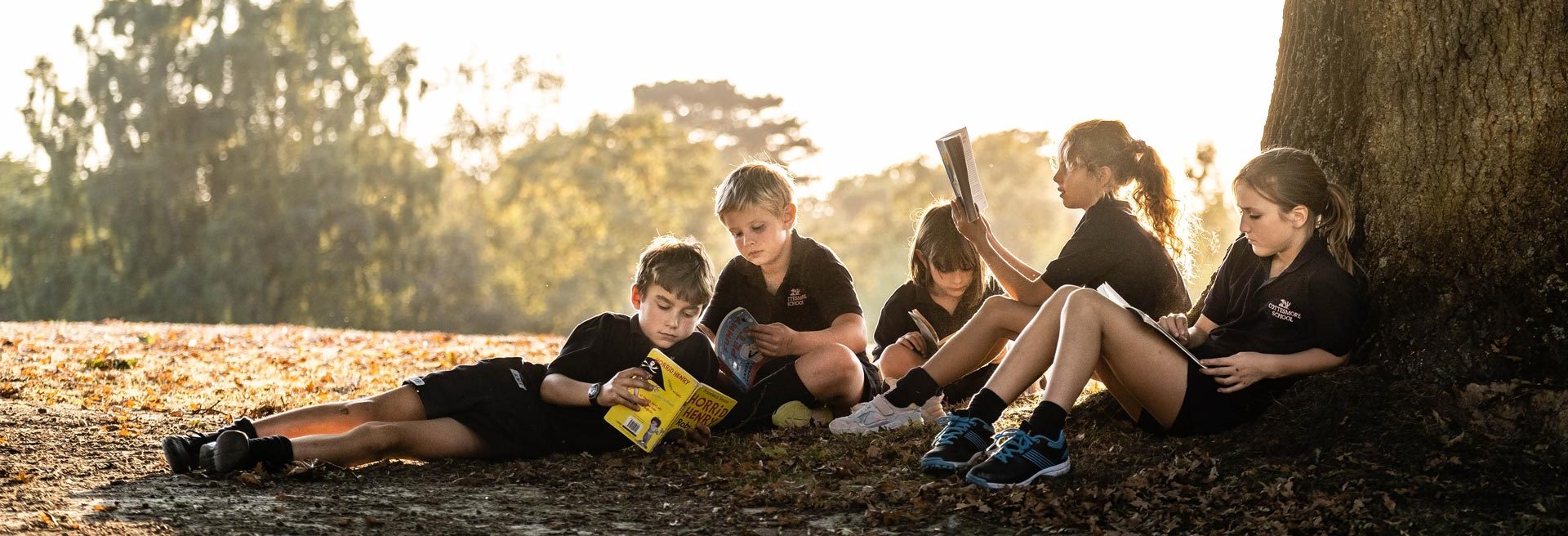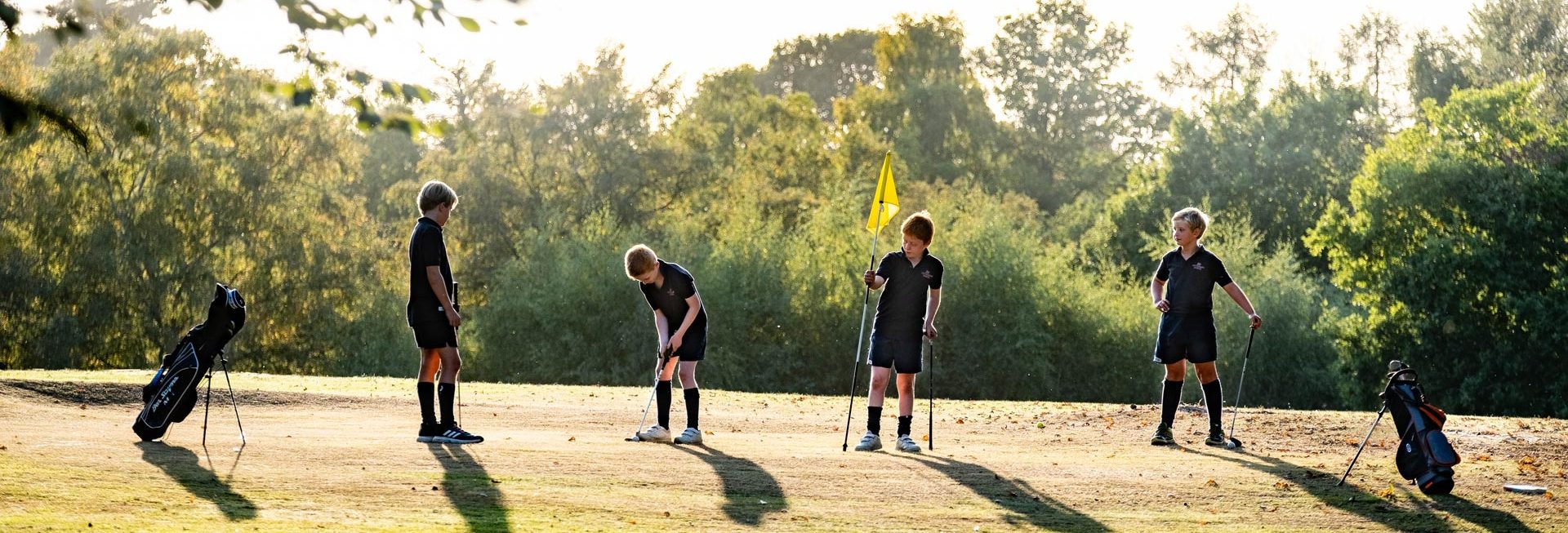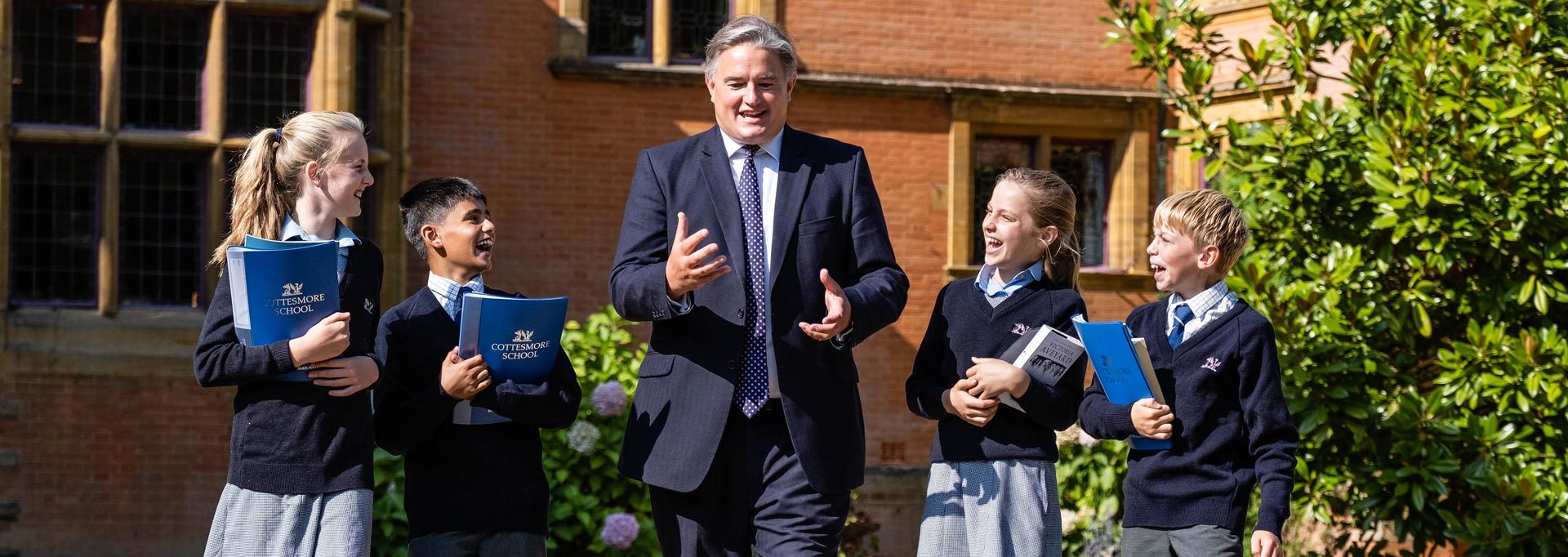Cottesmore was one of the first traditional boys prep schools in the country to become fully co-educational when it admitted girls in 1974. Soon after this a steady ratio of 100 boys and 50 girls was established.
Cottesmore has always been a family school, and it was a natural progression to give both boys and girls an equal chance to receive a top class education.
The decision was hugely successful and every aspect of school life has been enhanced since the addition of girls.
‘Surely the best school food in England’ says the Good Schools Guide.
Tatler agreed when they gave Cottesmore the “Best School Food Award 2009” out of all the best Public Schools and Prep Schools in the country.
Cottesmore is renowned for its good food. We have our own chefs, who know all the children well and understand their needs. We use local suppliers for fresh meat and vegetables and all the cooking is done here at the school.
As in a family, staff and children sit together at meal times, an ideal opportunity to get together informally and catch up with each other’s news.
Cottesmore’s scholarship and general academic record is excellent and children are thoroughly prepared for all the major public schools.
Expectations are high and the pace is brisk, although great care is taken to see that it is not overwhelming. With our staff/pupil ratio of 9:1, and an average of 14 pupils in a class, each child can and does receive individual attention.
An able child can move quickly through the school to join the scholarship stream, whilst the equally important majority work towards the Common Entrance examination to their Public schools at the age of 13.
All the children have their own e-mail address at school, and have access to the telephone. Many families keep in touch by phone and the children still write a letter home each week.
Between exeats, which are never too far apart, parents are welcome to come to tea on home match days. For those whose parents are living abroad, aunts, uncles, grandparents and guardians are always welcome too. Matches take place once or twice each week, and the invitation is open to all, even if a child is not playing in a team that day.
‘Weekends in’ at Cottesmore are what boarding school life is all about. They are tremendous fun, and much valued by the children. They are important times, when children learn how to play and develop lasting friendships.
On Saturday, morning school is followed by a full programme of games and matches. Most children get the chance to play in a match of some kind during the school year, and the 3rd XV carries as much importance as the 1st. After games, children have a range of more than 20 hobbies and activities to choose from, each run by a member of staff and by the children themselves.
On Saturday evenings television is available but is not of much interest to most children, who have so much else that they would rather be doing.
Sundays are a time for relaxation at the end of the busy week. After letter writing, children are free to choose from a vast programme of activities. The younger ones’ day is carefully structured, with games and fun organised by various members of staff. The older children appreciate the opportunity to plan their own time and under the discreet but watchful eye of a member of staff might choose activities as diverse as golf or swimming, practising their trumpet or climbing a tree. They could be in the art room, or working with the computers, playing chess or tennis. They might be boating on the lake or planting some radishes in their garden. There may be a great game of ‘manhunt’ with twenty friends, or they could be sitting in the sunshine reading a book!
In addition to half-terms, there are four exeat weekends during the Winter term, two during the Easter term and three in the Summer which extend from Friday afternoon to Sunday evening.
Parents are kept informed of their child’s academic progress by various methods. Every four weeks the children are assessed in effort and performance. The assessments are closely monitored by the child’s Form teacher and the Headmaster and are then sent home for parents to see. Full reports are written at the end of each term, and Parent/Teacher meetings are held regularly.
During a child’s first three years examinations take place twice a year. Scholarship and Common Entrance trials take place termly from the age of eleven. All results are sent to parents.
The Headmaster keeps in touch with all the schools that children go on to from Cottesmore and parents are always welcome to come and discuss their child’s future with him.
A child rarely leaves Cottesmore without having excelled in some field. To ensure this, the first years are spent developing firm foundations, confidence and most importantly, the will to work.
For able children, the scholarship stream provides the opportunity to win scholarships to the major public schools. Those children who have potential in fields other than the purely academic are given every opportunity to develop their talents, bearing in mind the standard necessary for Common Entrance.
Success in sport can lead to success in other areas and lays foundations for friendship and fun. There is an exceptionally wide range on offer at Cottesmore. Most children will have the chance to represent the school at something during the course of the year, whether in the 1st XV Rugby team, the 4th XI Football, the 2nds Swimming squad or the Junior Chess team.
The major games for the girls are: Netball, Hockey and Rounders; for the boys: Football, Rugby, Hockey and Cricket, and inter-school matches are played in all these sports.
Children also compete at local, county and national levels in many other disciplines. For example, Cottesmore is well known for its high standard of swimming and teams compete in and win national competitions on a regular basis. Cottesmore’s Swimming team were recently placed 4th in the under 11’s relay in the IAPS Swimming National Finals.
The standard of shooting is also very high, and Cottesmore is one of the three top prep schools in the country with a recently acclaimed under 11’s and under 12’s IAPS Clay Pigeon Shooting National Champions.
In recent years children have also competed nationally in Athletics, Hockey and Netball with great success.
Other sports on offer are numerous and include: Tennis, Squash, Judo, Golf, Basketball, Archery, Ten-pin Bowling and Fishing.
As well as the 28 major and minor sports on offer at Cottesmore, the children have myriad hobbies and activities available to them. The list of Arts, Crafts and Hobbies includes: Pottery, Printing, Model trains, Photography, Carpentry, Stamps, Bridge, Chess, Gardening, Rowing, Fishing and many more.
A new centre for Technology and the Arts provides an impressive array of disciplines. Some are taught formally and some are run as clubs at weekends and at spare moments during the day. These times are much treasured by the children and lasting interests are often developed.
Yes, very. Music plays a very big part in the life of Cottesmore and more than 90% of the children learn to play a musical instrument.
Our Director of Music runs this flourishing department. Ten visiting professional musicians take individual lessons in brass, woodwind, strings, percussion and singing, preparing children for examinations and scholarships. Staff and children play together in the School Orchestra, The Band and various ensembles. The children regularly perform in concerts both in and out of school.
There are three choirs. The Junior Choir for the under nines, the School Choir, open to anyone who loves to sing and the busy Chapel Choir who have sung in the great cathedrals of Salzburg, Venice, Florence and Barcelona.
LAMDA exams are prepared for at Cottesmore and this is a highly recommended creative release.
We are lucky enough to be close to several excellent theatres and children are frequently taken to see some top class productions. There are many occasions too when performers visit the school to give talks, plays and concerts.
All children have the opportunity to be involved in one or more of the seven plays the school puts on each year.
The major school production involves the whole of the top year and there are plays for the first and fourth years. Besides these, the children themselves have great fun producing and directing four plays in the House competitions, which are judged by outside adjudicators. At the end of the summer, the top year writes, directs and produces a play or review for the rest of the school.
Children whose parents live overseas are welcomed. Around 30% of our children have parents who live and work abroad, some of whom are expatriates and some of whom are foreign nationals.
We are accustomed to seeing children to and from airports. Arrangements can be made for flights to be met at Gatwick and Heathrow at the beginning of term and for children to be seen off safely at the end of term. For the children’s welfare, overseas parents must appoint a guardian, preferably living in London or the Home Counties.


